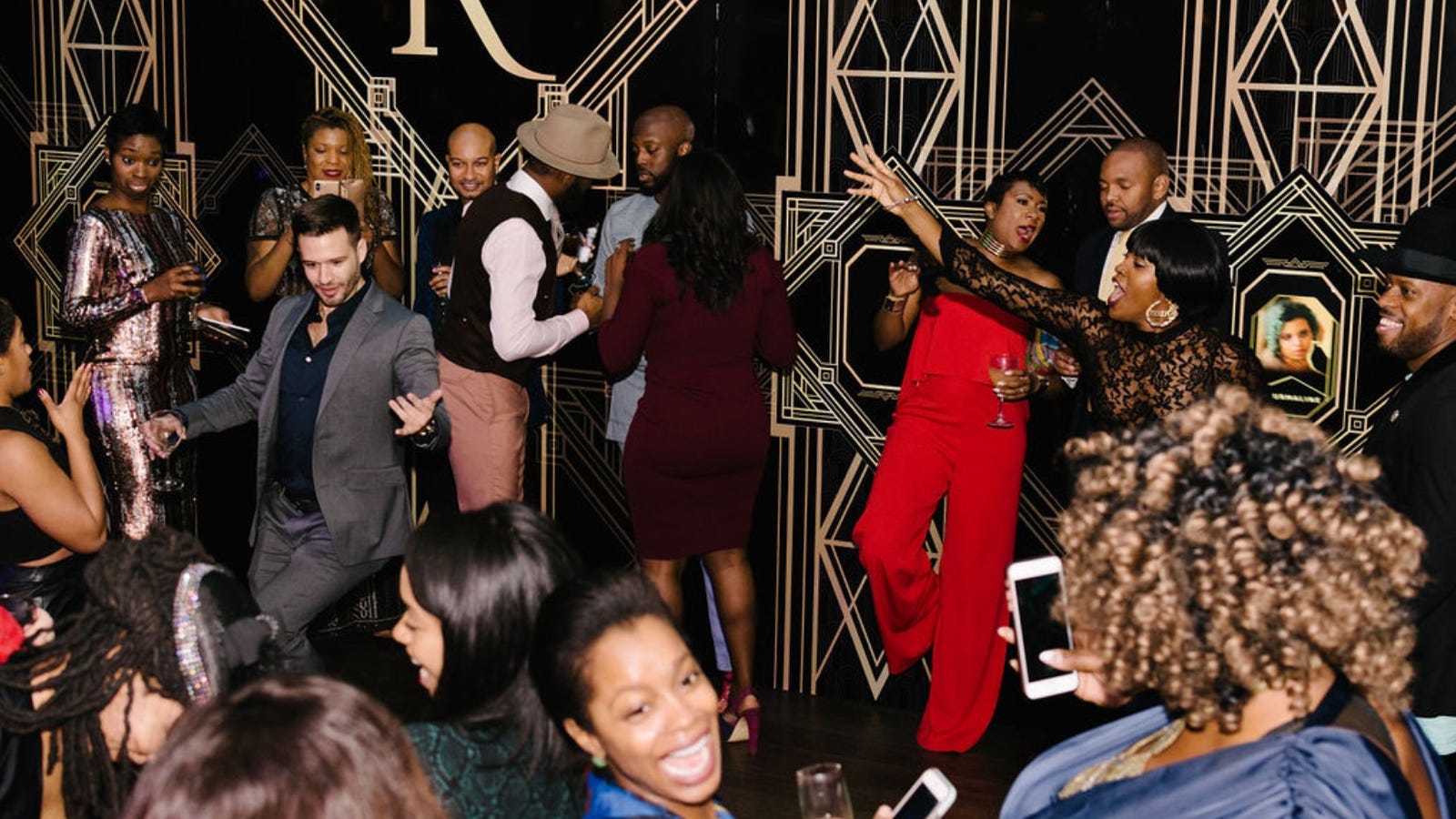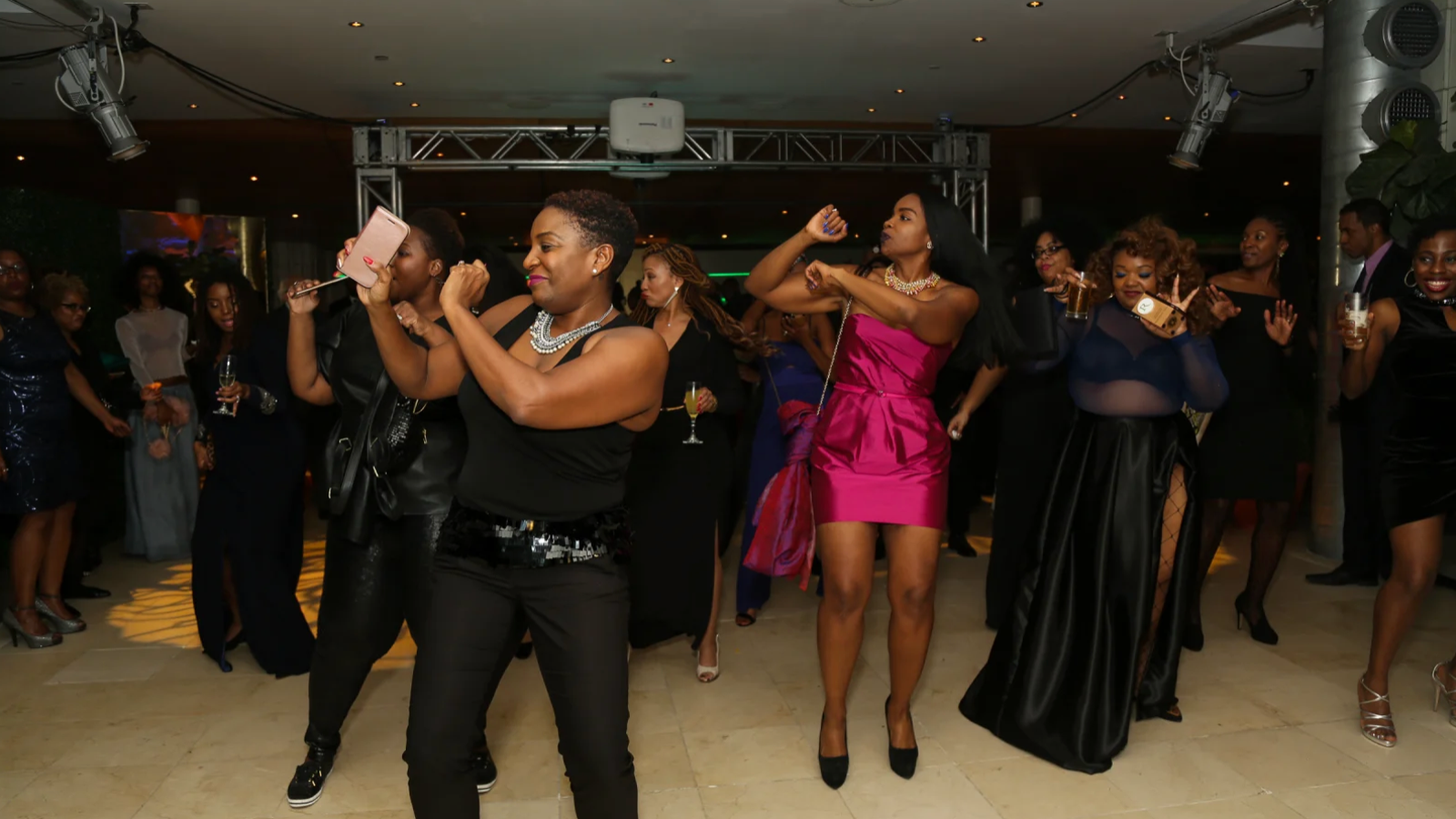Celebrating Black Excellence
For more than 10 years, The Root 10o has recognized the most influential African Americans age 25 to 45 in the areas of arts, business, community, entertainment, media, politics, STEM and sports. Check out our curated list of past coverage.

Watch: Ibram X. Kendi on Using His Influence to Ensure That All Black Lives Matter
The New York Times bestselling author of "How to Be an Antiracist" and director of Boston University’s Center for Antiracist Research emphasizes the importance of uplifting all Black people and why lists like The Root 100 are so critical.
The Hangover: We've Finally Recovered From 2018 The Root 100 Gala
What do you get when you put hundreds of well-dressed black folks, a great DJ, an open bar, and boundless black excellence into a trendy event space in New York City ? The Root 100 gala, our annual celebration of the year’s 100 most influential black doers, makers, movers and shakers.
So You Think You Know The Root 100?
While you might recognize the names Tarana Burke and London Breed from our 2018 list, do you really know who these people are and their many accomplishments? Our guess is no, so The Root hit the streets of New York City to see just how much folks know about these black luminaries.

Watch: Playwright Branden Jacobs-Jenkins on Race’s Importance in Narratives
Branden Jacobs-Jenkins was recognized on The 2017 Root 100 for his work changing narratives through the theatrical arts. In 2016, Jacobs-Jenkins was awarded a MacArthur “genius” grant, and his play "Gloria" was a finalist for the 2016 Pulitzer Prize for drama.
Watch: Raquel Willis on Bringing Your Black Transgender Identity to Work
Raquel Willis was recognized on The Root 100 in 2017 for her unapologetic voice and dedicated work to elevate the transgender community. Watch the video for her personal story about how hiding her true identity while working as a journalist in Monroe, Ga., shaped her advocacy.
Watch: Yance Ford Tackles Grief and Racial Injustice in the Moving Documentary, 'Strong Island'
Filmmaker and 2017 Root 100 honoree Yance Ford’s film "Strong Island" is a documentary that tells the story of the Ford family and how their lives were forever altered by the shooting death of Yance’s older brother, William, in 1992. He was killed by a white man in the Long Island, N.Y., where Yance’s parents had moved to raise a family. Stunningly, the case never went to trial after being reviewed by a grand jury.

The Root 100 No. 1s: Melissa Harris-Perry Lets the World Know She Is Not Your Mammy
The indomitable Melissa Harris-Perry gave us #Nerdland, that delicious slice of TV that wasn’t white-centered, wasn’t male-centered and was here for all the blerds who craved nuanced political thought and conversation. For all this black girl brilliance, she was named to the No. 1 spot on The Root 100 in 2012.
The Root 100 No. 1s: Ben Jealous, a Supreme Builder of Bridges Over Left and Right
As head of the NAACP, Jealous was most astute in recognizing the fact that the game had changed since the days of de jure segregation and open racial terror. Under his steady guidance, the outfit took on more contemporary issues such as the abolition of the death penalty, gay-marriage equality and police brutality. For all of this, Jealous was named to the No. 1 spot on The Root 100 in 2013.

The Root 100 No. 1s: Ta-Nehisi Coates Wanted to Be ‘the Baddest Motherfucking Writer on the Planet’
It is a rare piece of long-form journalism that breaks the internet. But that’s exactly what happened when Ta-Nehisi Coates’ keen, decisive reportage, “The Case for Reparations,” dropped in June 2014, compelling the editors at The Root to give him that year’s No. 1 spot.
The Root 100 No. 1s: Shonda Rhimes Changes the Face of Television Forever
The pop-cultural impact of Shonda Rhimes cannot be overstated, although at this point, it’s hard to imagine TV without her forceful, casually diverse, complicated and occasionally ruthless characters who fall outside of what was heretofore the “norm” (read: white, heterosexual male protagonists and their stories). For her body of work, Rhimes was named The Root 100’s No. 1 in 2015.
The Root 100 No. 1s: Beyoncé Will Forever Be Bey-ond. She’s So Fly, They Named a Fly After Her
What can be said about Queen Bey that hasn’t already been said, done, sung, texted, tweeted, explicated, unpacked, imagined? In an age when there are very few true superstars, she stands alone; one of a few black women, one of a few of her generation. This is why, in 2016, she jumped over every other person on The Root 100’s list to secure the No. 1 spot.

